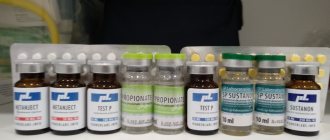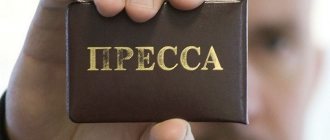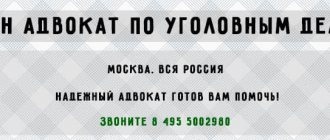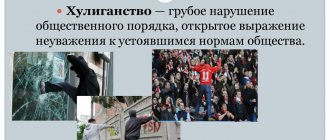Criminal legislation provides for liability for various criminal acts. These include illegal trafficking of potent or toxic substances for the purpose of sales, which is provided for in Article 234 of the Criminal Code of the Russian Federation. When considering this crime, there are certain features that are associated with the criminal legal characteristics of the act.
Multi-channel free hotline Legal advice on criminal law. Every day from 9.00 to 21.00
Moscow and region: +7 (495) 662-44-36
St. Petersburg: +7 (812) 449-43-40
Article 234 of the Criminal Code of the Russian Federation
Current legislation provides for liability for the manufacture, processing, transportation, storage, shipment or sale of substances with potent or toxic properties. The listed actions are carried out in violation of Russian law, with the goal of sales. It is worth noting that the substances in question do not belong to the category of psychotropic or narcotic drugs. Article 234 of the Criminal Code of the Russian Federation contains 4 parts.
In the first we are talking about the crime in question, the punishment in this case is presented in the form:
- Penalties – maximum 40 thousand rubles.
- The perpetrator is subject to compulsory work of up to 360 hours. Correctional labor for up to 1 year.
- Also, the offender may be limited in freedom for 3 years or imposed forced labor or imprisonment for up to 3 years.
In a situation where the actions in question are committed by a group of people who have a prior agreement, the punishment becomes more severe. In particular, penalties increase to 80 thousand rubles, compulsory labor - 480 hours (maximum), correctional labor is established for 2 years, imprisonment or forced labor for 5 years.
Part 3 states that the act was committed by an organized group or on a large scale. Criminals are subject to a fine of up to 120 thousand, forced labor or imprisonment for up to 8 years. Part 4 provides for liability for violation of the rules of production, accounting, storage, and transportation of the substances in question, when this entails causing significant harm.
Punishment in this situation is presented in the form of a fine equal to up to 200 thousand rubles, compulsory labor for up to 480 hours, and correctional labor for up to 2 years. Forced labor for up to 2 years may also be applied, a similar period is established for imprisonment. An additional penalty is the restriction of the right to hold a certain position or engage in certain activities. Duration – up to 3 years.
The note to the article stipulates that the list of substances with toxic or potent properties is enshrined in the Decrees of the Government of the Russian Federation, as well as the large size relative to these substances.
Commentary to Art. 234 of the Criminal Code of the Russian Federation
Art. 234 of the Criminal Code of the Russian Federation has a large number of comments. The article in question contains punishment for two elements of criminal acts, which are independent. In the first case, we are talking about the processing, production, transportation, storage of potent or toxic substances that were committed illegally. The second element is represented by a violation of the rules regarding the commission of the listed actions, which entails the onset of significant harm.
The main object is social relations that ensure the legal circulation of substances, as well as people’s health. An additional object is environmental and social safety. The subject is understood as substances that have potent or toxic properties that are not narcotic or psychotropic. The list of such substances is compiled by the Government. The lists include 43 names of poisons and 93 names of potent substances.
The legislation of the Russian Federation provides for a special procedure for medicinal substances that belong to the group of potent or poisonous substances. For such substances, subject-quantitative records are maintained. Accounting activities are carried out by pharmacies, organizations operating in the field of wholesale trade in medicines, private practitioners, medical institutions. The drugs are subject to dispensing from pharmacies according to prescriptions, which are written out on specially provided forms.
The minimum amount of these substances for the use of which entails liability under the article in question is not provided. If we talk about equipment that is used for processing or manufacturing or processing of potent and toxic substances. These include devices, tools, complexes, and installations. No special control is established regarding such equipment. Lists of equipment are not compiled.
The objective side is provided for in the form of actions listed in the criminal law. Illegal commission of such actions indicates that established rules regarding their implementation are violated or that permission is not available in a situation where it is required. Illegally committed sales will constitute a crime in any situation, regardless of the basis on which the funds were acquired.
The composition is considered formal, since the crime is considered completed after the commission of one of the above actions. The actions specified in Part 1 of Article 234 of the Criminal Code are completed from the moment they begin to be carried out. If we talk about marketing, as well as equipment for processing or manufacturing the substances in question, it will be completed when the actions aimed at marketing are completed.
The subjective side can be characterized by direct intent, as well as the presence of a special purpose. This goal appears in the form of a desire to sell potent or toxic substances. The motives that guide the perpetrator may be different and do not affect qualifications.
The subject in this case is general, that is, it is a sane individual who has reached the age of 16 years. Illegal trafficking of potent or toxic substances involves a qualified offense in the form of the commission of a criminal act by a group of persons with a prior conspiracy. Particularly qualified personnel - actions are carried out by an organized group or on a large scale.
The large size is established by Government Decree No. 964 of 2007.
It is necessary to consider the second element of the crime provided for in Art. 234 of the Criminal Code of the Russian Federation. Its immediate object is social relations, which are protected by laws. They provide special rules for the circulation of such substances. An additional object is public safety, property safety, etc. The subject will be substances with potent or toxic properties that are not classified as narcotic or psychotropic.
The objective side is expressed in actions that are prescribed by law. They are associated with violation of the rules of circulation of the substances in question.
The objective side is formed by adding the following features:
- the rules established for turnover have been violated;
- the consequences are presented in the form of theft of substances or causing significant harm;
- the presence of a causal relationship between two points.
The concepts listed in part 4 of the article in question are as follows: production is understood as actions aimed at the serial production from plants or chemicals of substances that have toxic or potent properties. Accounting is required to count and record such substances.
Violation of turnover rules applies to situations where they are not observed or are observed, but with some violations. Similar rules are established in legislative acts operating at the legislative level. Today, substances belonging to the group of drugs are better regulated; in other cases, there are no uniform rules.
The consequences presented by the theft of funds indicate the presence of a completed criminal act. Its concept is given in the provisions of Article 158 of the Criminal Code of the Russian Federation. In such a situation, the size of the stolen property does not matter, that is, even if it is insignificant, the crime will occur.
If, as a result of the commission of an act provided for in Article 234 of the Criminal Code, serious harm to human health or death occurs through negligence, this is not covered by this norm. It is required to apply Articles 118 or 109 and 234 of the Criminal Code in combination. To establish the existence of a causal relationship, it is necessary to determine that significant harm occurred as a result of a violation of the rules of circulation.
The composition of the act is considered to be material - it is completed at the moment when the consequences manifested themselves, which are reflected in the legislation. The subjective side, according to different authors, can be expressed both in the form of intent and negligence. Regarding the consequences that have occurred, the legislator directly states in the article that the perpetrator acts carelessly. The subject in this case is special - it can only be a person who is responsible for complying with the rules of turnover.
Commentary on Article 234 of the Criminal Code of the Russian Federation
Commentary edited by Rarog A.I.
1. Potent substances are substances that are not narcotic, have an intoxicating effect on a person and can cause death or harm to health.
2. Toxic substances include substances that have a toxic (poisonous) effect on the human body and can cause death or harm to health. When deciding whether to classify a particular substance as potent or toxic, one should be guided by the Nomenclature and quotas of narcotic drugs, potent and toxic substances, including substances included in tables 1 and 2 of the UN Convention against Illicit Traffic in Narcotic Drugs and Psychotropic Substances of 1988. , which are subject to the procedure for import into the Russian Federation and export from the Russian Federation, approved by Decree of the Government of the Russian Federation of March 16, 1996 N 278 (SZ RF. 1996. N 34. Art. 4122). If necessary, it is necessary to obtain an appropriate expert opinion.
3. Equipment for the production or processing of potent or toxic substances is recognized as both industrial and homemade or adapted equipment intended for producing chemical reactions or controlling physical processes to obtain a potent or toxic substance.
4. The commented article provides for two independent crimes: Parts 1 - 3 establish liability for actions related to the illicit trafficking of potent or toxic substances; in Part 4 - for violating the rules of their legal circulation.
Actions expressed in the illegal production, processing, acquisition, storage, transportation or shipment or sale of potent or toxic substances or equipment for their production or processing are similar in content to the same actions provided for in Art. Art. 228 and 228.1 of the Criminal Code (see comments to these articles).
The illegality of these actions is manifested in their commission without the appropriate permission obtained in the prescribed manner.
5. The crime is considered completed from the moment of commission of any of the actions listed in this article.
6. The subjective side of the crime is characterized by direct intent. In case of illegal production, processing, acquisition, storage, transportation or forwarding, a mandatory sign of the subjective side is the special purpose of selling potent or toxic substances or equipment for their production or processing.
7. The subject of the crime is a person who has reached the age of 16 years.
8. Part 2 of this article identifies the commission of a crime by a group of persons by prior conspiracy as a qualifying feature (see commentary to Part 2 of Article 35 of the Criminal Code).
9. On the commission of a crime by an organized group (Part 3), see commentary to Part 3 of Art. 35 of the Criminal Code.
10. When qualifying a crime committed in relation to potent substances on a large scale (Part 3), it is necessary to keep in mind the following: a) the indicated amount applies only to potent substances and does not affect the qualification of actions in relation to toxic substances and equipment; b) the law does not specify a particularly large size of a potent substance, therefore the specified size is also covered by this qualifying feature; c) lists of potent and toxic substances and large sizes of the former are approved by Decree of the Government of the Russian Federation of December 29, 2007 N 964.
11. Part 4 of the commented article provides for liability for violation of the established rules for the legal circulation of potent or toxic substances. The subject of this crime does not include equipment for the manufacture or processing of potent or toxic substances.
12. The range of actions specified in part 4 of this article, in comparison with Art. 228.2 of the Criminal Code is much narrower, in particular, it does not include the manufacture (handicraft), processing, sale (not in the form of dispensing), use, import, export or destruction of potent or toxic substances, therefore violation of the rules in relation to these actions does not form part of the offense in question crimes.
13. On the content of the concept of theft, see the commentary to Art. 158 of the Criminal Code.
14. Other significant harm should be understood as illness of at least one person, pollution of the natural environment with toxic substances, suspension of the production process for a long period, the occurrence of a fire, etc.
15. The crime is considered completed from the moment one of the consequences specified in the law occurs.
16. The subjective side of the crime is characterized by a careless form of guilt.
17. Special subject of a crime - a person who is entrusted with the obligation to comply with established rules in the production, acquisition, storage, accounting, release, transportation or shipment of potent or toxic substances.
Judicial practice under Article 234 of the Criminal Code of the Russian Federation
The guarantor of reducing the crime rate is bringing the perpetrators to justice, enshrined in legislation. There are enough examples of judicial practice in this category of cases.
These include:
- The decision of the court of the city of Stavropol, made in April 2022. The judge examined a criminal case against citizen S., who committed intentional acts that included the illegal storage and sale of potent substances. In this case, the action was committed on a large scale. From the circumstances of the case it follows that S. bought and began to store a drug that does not belong to the category of narcotics, but at the same time has potent properties. The total quantity of the drug purchased was 10 grams. S. kept it in an unspecified place. Then S., having selfish intentions, decided to sell this drug - he gave it to citizen K for a certain monetary reward. According to the study, the drug given to S. is a potent substance. The Government Decree stipulates that in relation to this substance, a mass of 10 grams is interpreted as a large size. Citizen K. voluntarily handed over the received drug to police officers. Based on the results of the consideration of the case, the court came to the conclusion that citizen S. was guilty of committing a crime under Part 3 of Article 234 of the Criminal Code and sentenced him to 2 years in prison.
- The Avtozavodsky District Court issued a verdict against citizen Ch., who was found guilty of committing a crime under Part 3 of Article 234 of the Criminal Code of the Russian Federation. From the case materials it follows that Ch., through the use of the Internet, acquired a potent substance from an unidentified person for the purpose of sale, while having selfish motives. Then Ch. continued to implement his criminal intent and invited citizen A. to assist him in receiving correspondence from an unidentified person. This parcel contained substances purchased by Ch. Citizen A., not knowing about Ch.’s true intentions and his goals, agreed to help him free of charge and receive the parcel at the post office. A. went to the post office, where she received 4 envelopes addressed to citizen Ch., then handed them over to him. Ch. kept the received drugs with himself, with the goal of selling them to an unspecified circle of people. During the operational search activities, Ch. was detained. The potent substances found in his possession are presented in large quantities, which is confirmed by the expert report. When considering the case, the court takes into account as mitigating circumstances the fact that Ch. actively contributed to the investigation, provided passwords on phones, and explained in detail the circumstances of the case. He was found guilty of committing an act under Part 3 of Art. 234 of the Criminal Code and he was sentenced to a fine in the amount of 60 thousand rubles.
- Another verdict was handed down by the court in the city of Tambov in April 2018. Citizen K. was found guilty of committing an act provided for in Part 1 of Article 234 of the Criminal Code of the Russian Federation. The court found that K., with the intent to illegally sell a potent substance, sold citizen Yu., without a special prescription from a medical organization, one ampoule containing 1.12 grams of a potent substance.
During the personal search, the indicated ampoule was confiscated from Yu. An examination of the contents was carried out, as a result of which it was established that it contained a potent substance.
According to the list contained in the Government Decree, it is indicated that the substance tramadol, which was found in the ampoule, is a potent substance. Moreover, the quantity in which the drug is presented does not refer to a large size. K.’s actions are qualified under Part 1 of Article 234 of the Criminal Code. The culprit was given a fine of 20 thousand rubles.
Judicial practice in this category of cases is extensive.
Judicial practice: sentences and punishment under Art. 234.1 of the Criminal Code of the Russian Federation
- Resolution of the Plenum of the Supreme Court of the Russian Federation dated... PLENARY OF THE SUPREME COURT OF THE RUSSIAN FEDERATION DECISION dated December 27, 2002 N 29 ON JUDICIAL PRACTICE IN CASES OF THEFT,...
- Ruling of the Constitutional Court of the Russian Federation dated March 13, 2018 N 578-O THE CONSTITUTIONAL COURT OF THE RUSSIAN FEDERATION RULING dated March 13, 2018 N 578-O ON THE REFUSAL TO ACCEPT A CITIZEN’S COMPLAINT FOR CONSIDERATION...
- Resolution of the Presidium of the Supreme Court of the Russian Federation dated... PRESIDIUM OF THE SUPREME COURT OF THE RUSSIAN FEDERATION DECISION dated December 5, 2018 N 126-P18 ON RESUMING PROCEEDINGS IN THE CASE DUE TO NEW...
- Decision of the Supreme Court: Determination No. 56-КГ16-46 dated... THE SUPREME COURT OF THE RUSSIAN FEDERATION No. 56-КГ16-46 DETERMINATION Moscow March 6, 2017 Judicial Collegium for Civil Cases of the Supreme Court...
- Decision of the Supreme Court: Determination No. 56-КГ16-46 dated... THE SUPREME COURT OF THE RUSSIAN FEDERATION No. 56-КГ16-46 DETERMINATION Moscow March 6, 2017 Judicial Collegium for Civil Cases of the Supreme Court...
- Ruling of the ECtHR dated 02/14/2017 EUROPEAN COURT OF HUMAN RIGHTS THIRD SECTION CASE “MASLOVA VS. RUSSIAN FEDERATION” (Complaint No. 15980/12) JUDGMENT…
- Resolution of the Plenum of the Supreme Court of the Russian Federation dated... PLENAUM OF THE SUPREME COURT OF THE RUSSIAN FEDERATION DECISION dated June 25, 2022 N 18 ON JUDICIAL PRACTICE IN CASES OF CRIMES,...
- Resolution of the Plenum of the Supreme Court of the Russian Federation dated... PLENARY OF THE SUPREME COURT OF THE RUSSIAN FEDERATION DECISION of November 15, 2016 N 48 ON THE PRACTICE OF APPLICATION BY COURTS OF LEGISLATION GOVERNING FEATURES...
- Decision of the Supreme Court: Determination N 203-APU17-21... THE SUPREME COURT OF THE RUSSIAN FEDERATION Case No. 203-APU17-21 APPEAL DECISION Moscow August 31, 2022 Judicial Collegium for Military Personnel of the Supreme...
- Judicial Collegium for Criminal Cases, appeal:... THE SUPREME COURT OF THE RUSSIAN FEDERATION Case No. 72-APU 17-21 APPEAL DECISION Moscow October 04, 2022 Judicial Collegium for Criminal Cases...
Consultations and comments from lawyers under Art. 234 of the Criminal Code of the Russian Federation
Professional lawyers say that there are several positions regarding criminal acts provided for by the Criminal Code, in particular, their characteristics. Acts enshrined in Article 234 of the Criminal Code of the Russian Federation often become the topic of diplomas, essays, coursework and other scientific works.
The statute of limitations for the category of acts under consideration depends on which part of the article the crime is classified under. For example, part one refers to crimes of minor gravity; accordingly, the statute of limitations for it is two years. The change in the specified period is due to the severity of the crime. The jurisdiction of Article 234 of the Criminal Code applies to investigators of the Russian internal affairs bodies.
Such substances:
- have an intoxicating effect on humans, but are not drugs;
- can cause harm to health.
If a person consumes toxic substances, this will cause a strong toxic effect, which can result in death and also cause serious harm to health. Steroids are not one of them. If they combine with toxic substances, they can become poisonous.





